Google’s Featured Snippets are an underrated method of driving traffic to your eCommerce store.
Featured Snippets are considered the Holy Grail of SEO because they appear well before other content on Google’s search engine results pages.
“We display featured snippets when our systems determine this format will help people more easily discover what they’re seeking, both from the description about the page and when they click on the link to read the page itself.” – Google on How Google’s featured snippets work. ”
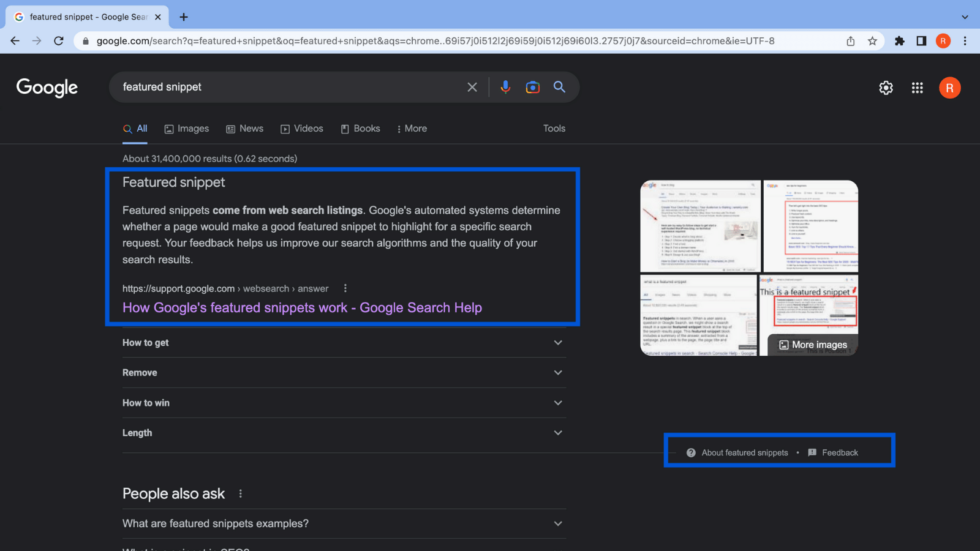
When your content is used as a Feature Snippet – you’re ranking for Position 0. We’re serious about eCommerce SEO, but Position 0 sounds like the highest finishing place in SpeedRacer.
Position 0 is the HIGHEST ranking position you can get for Google’s organic search results. Look at how much virtual real estate the following Featured Snippet occupies on mobile. Google is confident enough in the site’s content to only show this result above the fold.
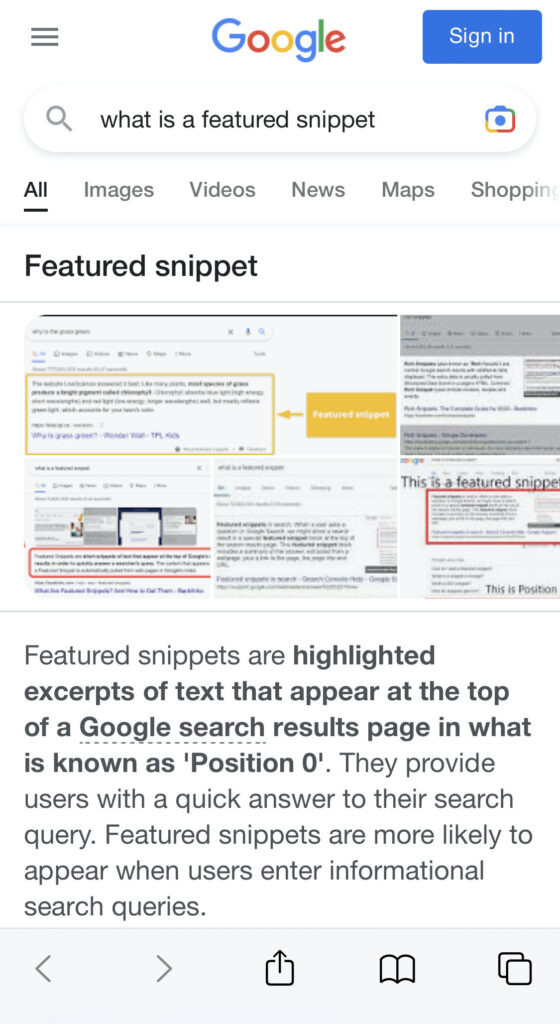
If you’re wondering where you have heard “snippets” before in relation to SEO, Featured Snippets are not the same as Rich Snippets! Rich Snippets are additional pieces of content that accompany search results: star ratings, number of reviews, pricing, etc
Here’s an image of Rich Snippets on a search result for Goat Milk Soap. If you’re interested in learning more about Rich Snippets, you can read up on them here and test your page for Rich Snippets here.
Trust Spot helps merchants like Goat Milk Stuff display Rich Snippets on product pages.

August 2022 Update:
As of August 2022, Google has started using its Multitask Unified Model (MUM) to improve Featured Snippets:
our systems can now understand the notion of consensus, which is when multiple high-quality sources on the web all agree on the same fact. Our systems can check snippet callouts (the word or words called out above the featured snippet in a larger font) against other high-quality sources on the web, to see if there’s a general consensus for that callout, even if sources use different words or concepts to describe the same thing. We’ve found that this consensus-based technique has meaningfully improved the quality and helpfulness of featured snippet callouts.
In short, that means that Google needs to understand that multiple sources on the web have agreed to roughly the same answer to a question.
Why do Featured Snippets matter to eCommerce stores?
One of Google’s focuses is serving immediate answers to the mobile and voice search market. Better answers and faster information = more satisfied users.
When Google displays a featured snippet on a mobile search result, the snippet is the only search result above the fold. You’re virtually shoving all of your competitors out of the way. It’s like a Bachelor episode where there’s only one contestant who can receive a rose.

Let’s look at some data:
- EngineScout surveyed over 3,500 Google users and found that, on average, featured snippets received 35.1% of the total click share on a search results page.
- Authority Hacker recently crawled and analyzed over 1 million Google search results. Their study found that Featured Snippets display on over 50% of non-branded keyword searches.
- Authority Hacker found that, on average, the top result gets 40% of the aggregate organic traffic. For keywords that matter (i.e. >1000 searches a month) the figure goes up to 47%.
It’s important to note that, because Google displays featured snippets for consensus driven answers, Google has a difficult time displaying featured snippets for transactional search terms. For example, there’s no clear answer for “which tennis shoe is the best for my wide foot?”
You might be wondering, “if answers to transactional searches won’t display in featured snippets, why am I reading this article?”
The answer is simple: you can write purely informative content that displays as a featured snippet, attract traffic to your domain, and gain trust with your visitors.
If you’re a shoe store, don’t just write content about why your shoes are the best for wide feet, write about how to determine if a foot is wide or narrow!
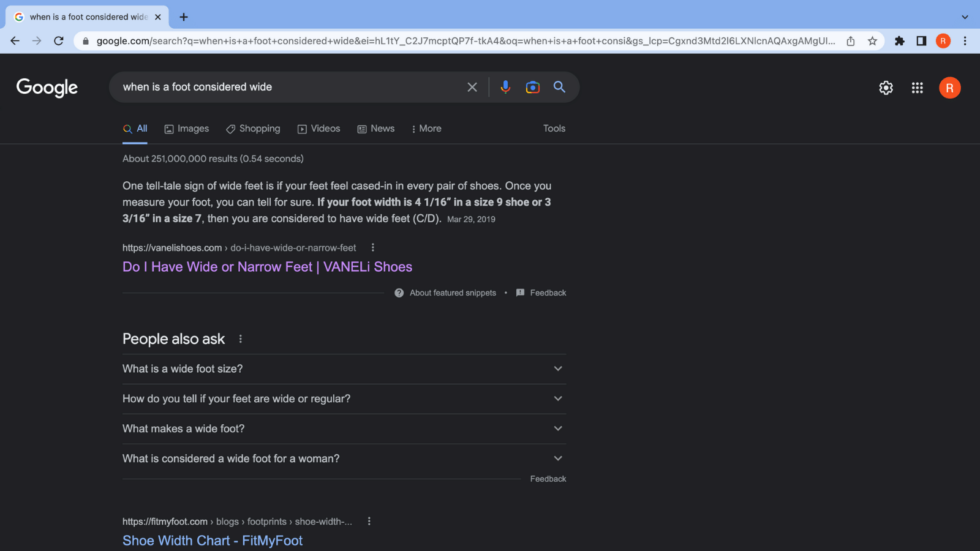
Different types of featured snippets
There are four types of featured snippets:
- Paragraphs
- Lists
- Table
- Videos
Paragraph
This is the most common type of featured snippet. They usually consist of 2-3 sentences with a few essential words in bold. You’ll see featured snippet paragraphs when you search with:
- “How to do X?”
- “Who did Y?”
- “What is Z?”

Lists
This type of featured snippet can either be an ordered list or an unordered, bulleted list. You’ll see featured snippet lists when you search:
- “What is the best X?”
- “How can I make Y?”
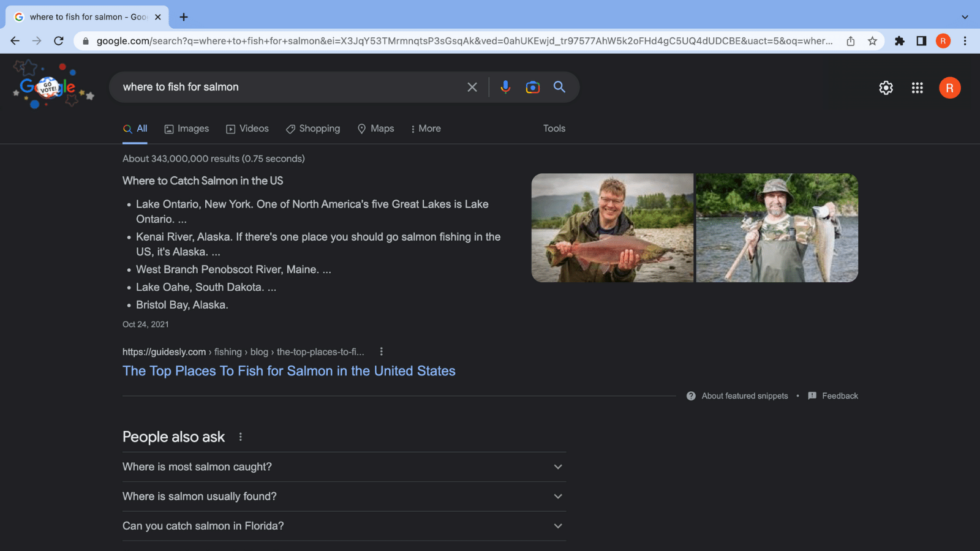

Table
This type of featured snippet helps you compare data with multiple rows and columns. You’ll see featured snippet tables when you search:
- “X data by Y grouping”
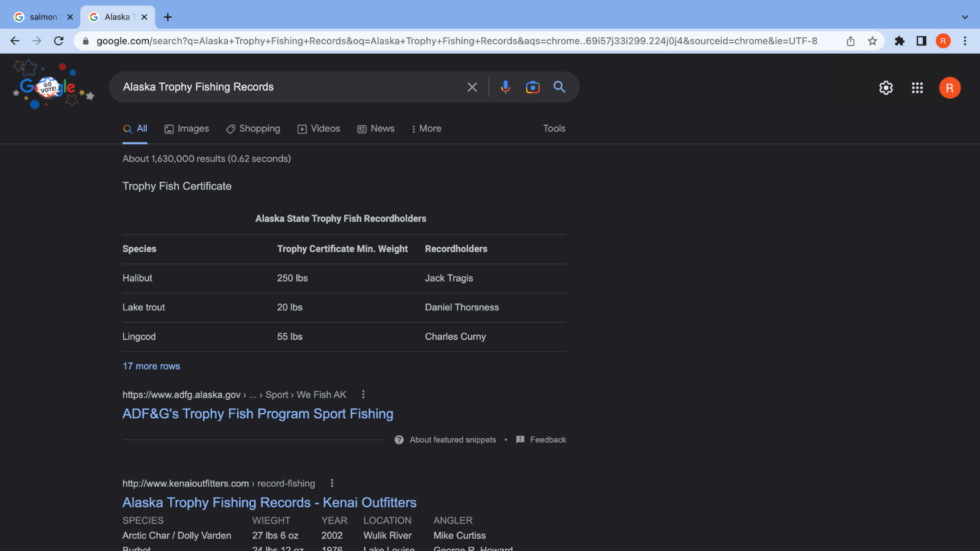
Video
This featured snippet is pulled directly from YouTube. You’ll typically see featured snippet videos when you search:
- “How do I do X task?”

How can your eCommerce store rank for featured snippets?
Okay, this is where the fun really begins! Let’s talk about tactics.
Reminder: Google has trouble displaying featured snippets for transactional search terms. You’ll need to create helpful, educational content for your audience.
Create blog posts derived from your customers’ product questions:
- Use your Ecommerce store’s product question and answers feature to find the most commonly asked questions. If you don’t have a question and answers feature on your product pages, we highly recommend you consider this. If you want to look at RaveCapture’s question and answers feature, we’re happy to help!
- Create educational blog posts that answer your customers’ questions.
- Don’t fall into the trap of making your blog posts hyper-promotional. Like we mentioned, Google can’t include promotional material in featured snippets.
Create blog posts derived from long-tail keyword searches on/to your site
Semrush and Brado analyzed over 46 million keywords keywords on mobile devices and found that:
- Of keywords made up of a single word, only 4.3% had a featured snippet;
- Of keywords made up of five words, 17% had a featured snippet;
- Of keywords made up of ten words, 55.5% had a featured snippet
- Pull long-tail search terms from your eCommerce store’s search feature or Google’s search console.
- Create educational blog posts that focus on these search terms.
- Avoid frequent CTAs through the blog posts.
When we say long-tail, we mean long-tail! Make sure your blog posts are targeting keywords made up of at least five words. Check out the post about Feeding hummingbirds during the winter from Yard ‘n Garden Land.
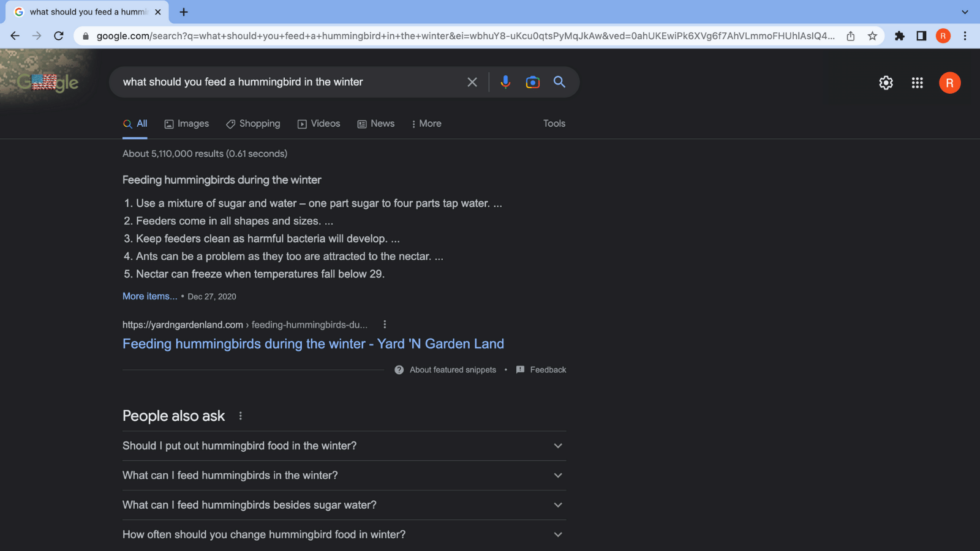
Practice sound SEO practices on the blog posts
- Organize your posts properly with header tags
- Use long-tail keywords
- Make sure your page speed is good
If you have any success with ranking for featured snippets, please let us know! We would love to highlight your efforts.
